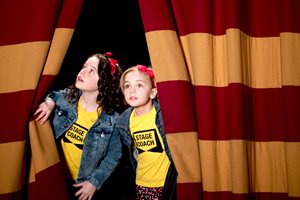The beginning of a new school year is always filled with a collection of emotions from both students and parents alike: anticipation, worry, stress, excitement, etc. And while parents try to help set up their children for a successful school year by signing them up for more competitive math and coding classes after school, children are missing out on the proven benefits of artistically-inclined programs, and that developing their EQ, can ultimately benefit their IQ.
As principal of Stagecoach Performing Arts Mississauga/Oakville, I often get feedback from parents and students that participating in performance-based arts programs provide peripheral skills that they credit to increased academic achievement, especially in traditional subjects like math and English.
My favourite feedback is not necessarily that they got a part in a school play, or booked a commercial, or got an agent, but rather that their teachers have noticed a real change in their child’s confidence. They are making eye contact when they speak in front of the class, are having more fun working with others and they are sharing their answers louder in class.
I still keep a picture on my desk of a report card a parent brought me years ago where their child’s grades had gone up significantly. The teacher had noted a huge growth in confidence, collaboration, participation, social skills, and creative thinking, and when the teacher asked if they were doing anything different at home, the parent told me they owe it all to Stagecoach.
Some of the benefits of performance arts include:
· Resilience – Being a kid can be tough, and the thought of a child being hurt is scary for a parent – knowing they have the capacity to recover quickly, to learn and move on, to “get back up again” can be reassuring. The Performing Arts requires students to become resilient, to process immediate feedback on their skills and focus on the merits of the critique, while not personalizing it.
· Learning to Fail – In theatre classes, “failing” is celebrated; trying things, taking risks, sometimes it works, sometimes it doesn’t, but it’s important to have a safe environment to take these risks.
· Empathy – Theatre teaches students to step into another person’s shoes (through character work, etc.), to think about other points of view/differences of opinion. It is so important, today more than ever, to learn to be accepting and to understand different points of view, different backgrounds, cultures, and diversity.
· Problem Solving – Theatre shapes young minds into becoming great problem solvers; whether it’s reciting a script, getting into character, or expressing emotion through song, the creative arts help to empower kids to use their imaginations to create scenes, to remove barriers or constraints encouraging them to think ‘outside of the box’, share new perspectives, and tell a story in a unique way while working in a team environment.
· Confidence – Dipping their toes in various theatre methods such as Improvisation, for example, can help ease the fear of public-speaking and sharing ideas as well as help develop their self-esteem to help overcome anxiety and self-doubt. Even asking questions in class and volunteering to answer questions will become less daunting.
The Stagecoach program offers students experience in all three areas of theatrical arts, each class providing exposure and high-quality instruction in the specialized disciplines of singing, acting and dancing. All classes are taught by experienced professionals and culminate in a grand showcase or production at the end of each term. Offering quality performing arts training to children aged 4-18 for almost 30 years, Stagecoach Performing Arts Schools have made it a focus of their program to foster ‘Creative Courage For Life’ through their weekly classes which are designed to build confidence and cultivate young potentials; encouraging students to stretch their personal limitations and creativity but most importantly, have fun!


